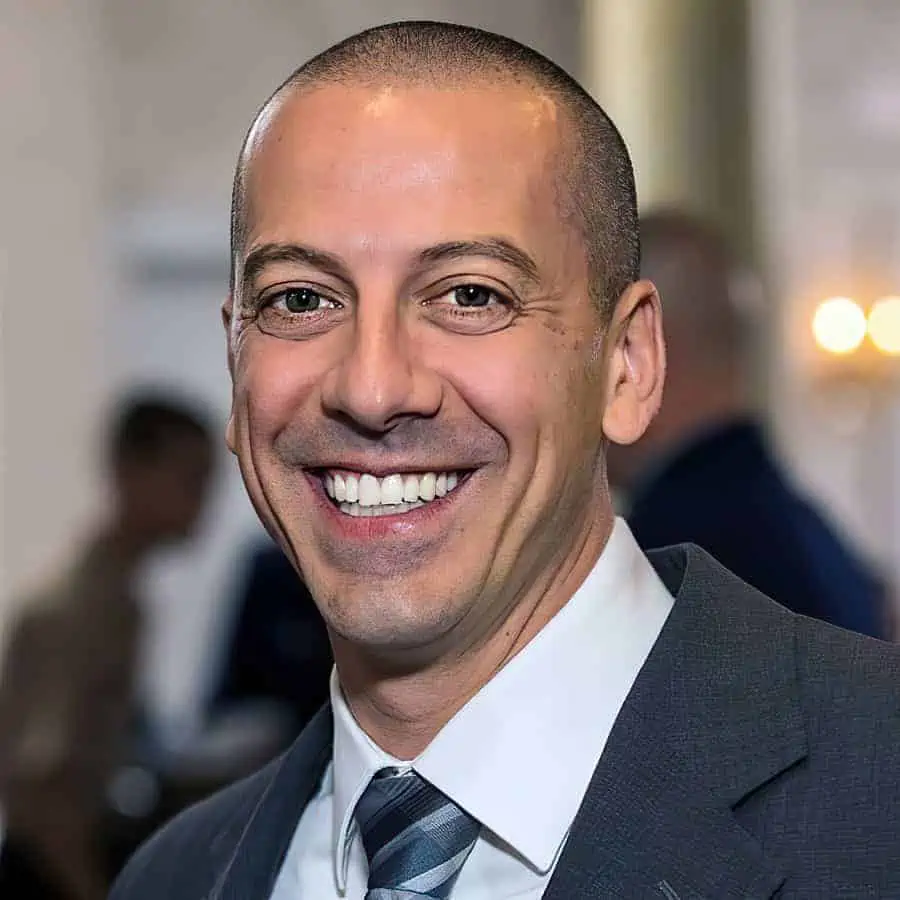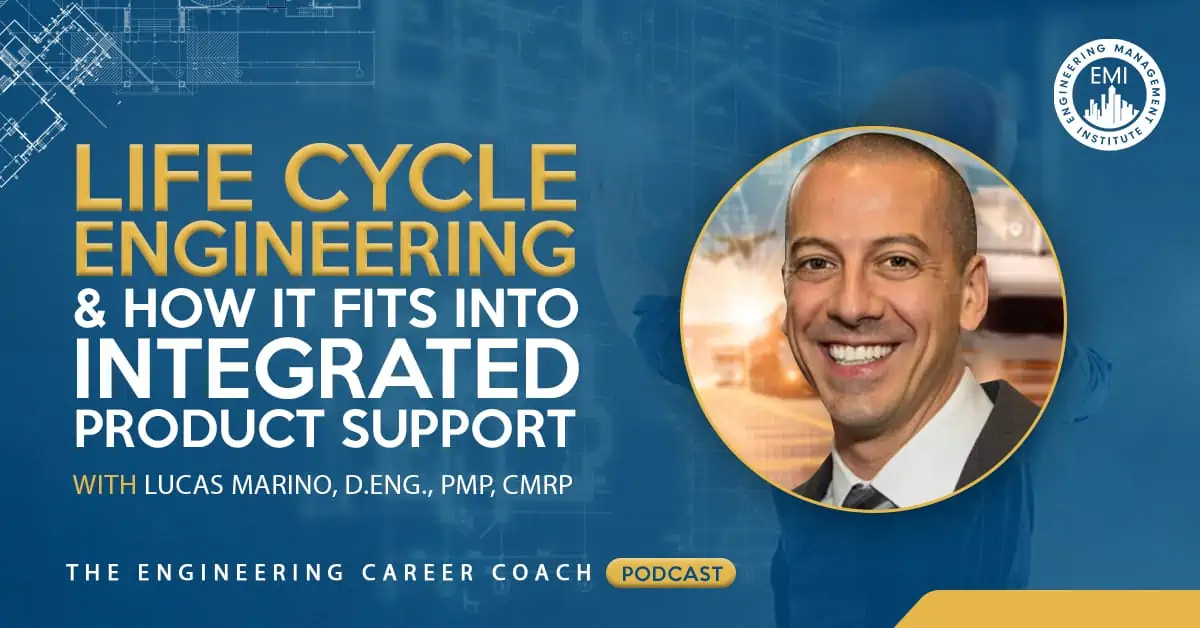Podcast: Play in new window | Download | Embed
In this episode, we talk to Lucas Marino, D.Eng., PMP, CMRP, a systems engineer and integrated logistics support manager – entrepreneur, and owner of EAST Partnership and MCS, LLC, about life cycle engineering and how it fits into integrated product support.
Engineering Quotes:
Here Are Some of the Key Points Discussed About Life Cycle Engineering and Integrated Product Support
- Military logistics engineering is everything you must do to sustain and care for complex weapons systems once they are built. It includes things like training the crew, supply chain, maintenance, and many more. Most of the analysis is during the logistics product development. The analysis provides data on reliability, the criticality of failure, how to design suitable maintenance programs, reduce the risk of failures, and maintenance strategies. The accumulated data contributes to the maintenance task analysis and level of repair analysis. In the military, having the asset available and fully functional is always goal number one.
- Life cycle engineering can get extremely complicated very quickly. It must be brought to the fundamentals and the basics. Do not get caught up in making things even more intricate. Ensure that the correct level of maintenance and analysis is plotted in your plan before the work starts and is then iteratively updated during the work.
- Communication is vitally important in life cycle engineering. Ensure you have the correct stakeholders involved to be sure you are communicating with the right people. When putting a team together, ensure that they will account for the end user, or the analysis will be flawed. To do this, you must select the right people based on how they will communicate and integrate into the team. Once you have a team, you need to put a routine in place with a pace and an expected level of interaction. When you have all these paths of communication, you are also managing expectations. Team leaders will gain trust if they are transparent and deliver enough guidance for the team to succeed.
- You cannot spend a year developing a strategy that will not help the end user. If a task needs completing, it is sent to a particular team to get it done. For that team to get the work done, the maintenance task analysis then develops a step-by-step procedure, on that system, in that operating context. So, you do the maintenance task analysis in the operation or environmental context of the asset. You then develop the procedure with those people and resources and then find out what technicians, parts, supplies, consumables, training, and technical manuals are needed. The maintenance task analysis documents everything that was done and stored in your repository of logistics data. All the data captured over the years is then taken into consideration when putting a strategy together. Things like how much work there is, how long it will take, what equipment and tools are needed, and what it will cost are assembled and used to predict the resource demands that are given to the end users.
- A master project programmer or manager figures out how to extract the most value from many project management methods and approaches and brings them together. Tailored ways on how to combine bureaucratic and agile teams are needed. You must assess the context operation of your project, figure out what is going to work best, and what tools you need to have in place—and remember that risk is the blanket that covers everything. You must bring the technical and business sides together in a way that supports the project. Time is of the essence, and the budget is not infinite. Work with people ahead of the charter development to properly account for the time you anticipate it will take.
- When working for the different sectors of the military, remember that while they all have similar approaches, they are all entirely different. They all have different operational and environmental contexts for their assets. Understanding your client, the operational and environmental context, and the strategy that needs to be in place is critical when working for military clients. Each sector has unique cultures and applications. They all expect high levels of proficiency in both technical and project management.
- All high-end engineering jobs require good communication and people skills. One of the best ways to develop these skills is to talk to strangers respectably on LinkedIn. You will meet some of the best people in your professional life through LinkedIn, and you could get many opportunities presented to you by your network. Step outside your box and share a lot. Instead of measuring your shares and likes, measure your involvement with your community. You can become a better professional by learning from so many other people. If you do not have a network, you will be at an extreme disadvantage when looking for work, changing your career, or hiring people.
- If you would like to have a career in life cycle engineering, becoming a generalized specialist is a place to start. You may deal with specialized people in their fields, but they also need to understand the disciplines surrounding them. You must be an expert in your field, but diverse enough to talk to experts in other fields and understand enough to make your programs better together. The door is wide open, with a lot of opportunities available for young people to get into this career field and establish their careers.
More in This Episode…
In the Take Action Today segment of the show, Lucas talks about what early to mid-career engineers can do to grow their careers.
About Lucas Marino, D.Eng., PMP, CMRP

He has been featured on webinars and podcasts for the National Defense Industrial Association (NDIA), American Society of Naval Engineers (ASNE), UE Systems, Fluke, Rooted in Reliability, Rob’s Reliability Project, Maintenance Disrupted, and iOffice’s Asset Champion. Additionally, he serves as an Assistant Professor at Old Dominion University in the Department of Engineering Management and Systems Engineering and on the Board of Advisors for the Council of Logistics Engineering Professionals.
“Projects we have completed demonstrate what we know; future projects decide what we will learn.” ~ Dr. Mohsin Tiwana
Resources and Links Mentioned in This Session Include:
Amentum
East Partnership
Connect with Lucas Marino, D.Eng., PMP, CMRP on LinkedIn
We would love to hear any questions you might have or stories you might share on life cycle engineering and integrated product support.
Please leave your comments, feedback, or questions in the section below.
To your success,
Jeff Perry, MBA
Host of The Engineering Career Coach Podcast






